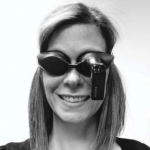 Special goggles that allow patients to self-record ictal nystagmus may provide early and accurate diagnosis of vertigo, an Australian proof-of-concept study has found.
Special goggles that allow patients to self-record ictal nystagmus may provide early and accurate diagnosis of vertigo, an Australian proof-of-concept study has found.
Sydney University researchers investigated the ability of video-oculography goggles in 117 people who had been previously diagnosed with Meniere’s disease (43 patients), vestibular migraine (67 patients) or benign paroxysmal positional vertigo (seven patients).
Led by research student Allison Young of the Institute of Clinical Neurosciences, the research team taught patients with recurrent vertigo recruited from a neurology outpatient clinic to self-record spontaneous and positional nystagmus at home while symptomatic, using the goggles.
They found that spontaneous horizontal nystagmus with SPV >12.05°/s had a sensitivity and specificity of 95.3% and 82.1% for Meniere’s disease.
Nystagmus direction change within 12 hours was also highly specific (95.7%) for Meniere’s disease. By comparison, audio tests for Meniere’s disease have both a sensitivity and specificity of 91%, the researchers noted.
Spontaneous vertical nystagmus was highly specific (93%) for vestibular migraine, but had a but a low sensitivity of 24%. For those with benign paroxysmal positional vertigo, the sensitivity was 100 percent and the specificity was 78%.